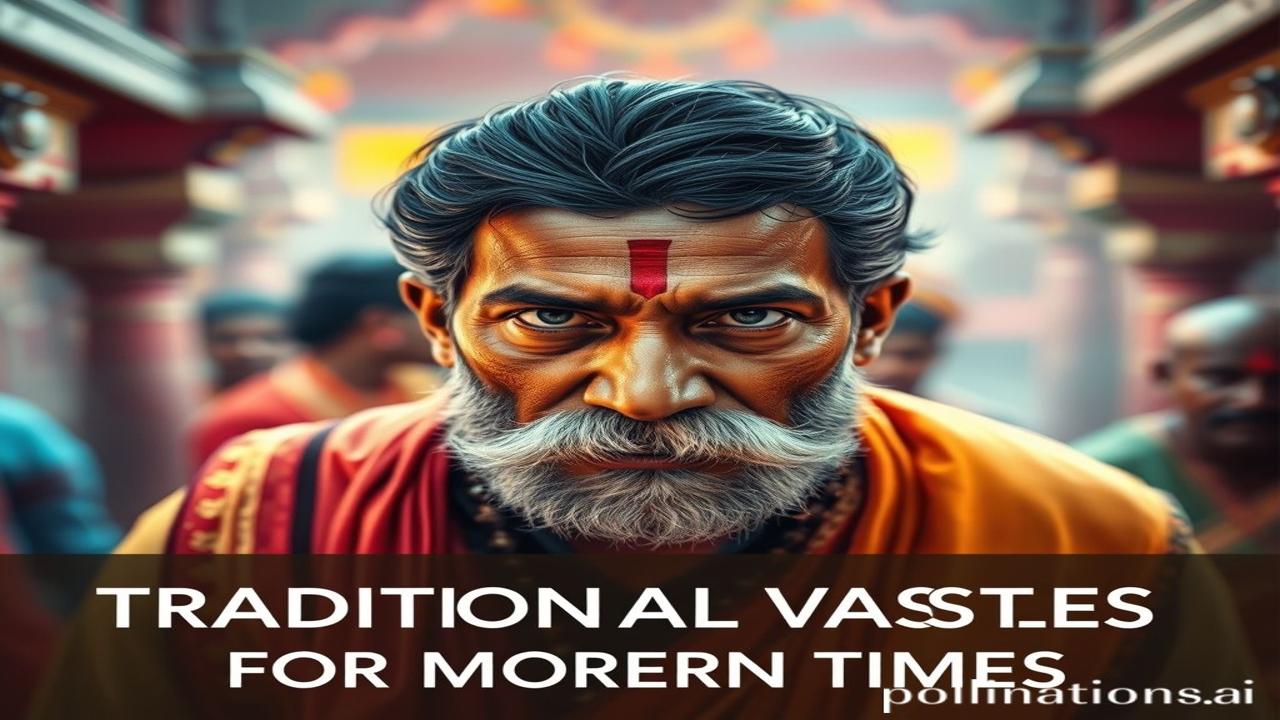Waqt Ke Pannon Mein Chhupee, Aaj Ki Roshni: Traditional Value Systems for Modern Times
Kabhi socha hai, ki jo pedh hum aaj laga rahe hain, uski chhaya mein kitne generations aaram karenge? Waqt toh nadi ki tarah hai, behta chala jaata hai, lekin kuch cheezein reh jaati hain – hamaare sanskaar, hamaari values. Aaj hum baat karenge unhi values ki, jo waqt ki dhool mein bhi chamakti hain, aur modern times mein bhi utni hi relevant hain. Let’s dive into the heart of Bharatiyata and see how our parampara can guide us forward.
Itihas Ki Batein: The Root of Our Values
Traditional value systems, yaani hamaari sanskruti se jude niyam aur aadarsh, koi achanak se nahin aa gaye. Inka shuruwat hamare ved, puran aur upanishad mein hai. Think about it – centuries ago, rishis and munis sat together, contemplating the meaning of life, dharma, and karma. Unhone jo seekha, woh likha, aur woh hum tak pahuncha.
These values aren’t just old stories. They shaped empires, inspired saints, and guided ordinary people. They were a compass, showing people the right path. For example, ahimsa (non-violence), popularized by Mahatma Gandhi, has roots stretching back to ancient Jain and Buddhist philosophies. Satya (truth), astheya (non-stealing), brahmacharya (celibacy), aparigraha (non-possessiveness) – these yama and niyama from Yoga Sutras are not just yoga terms, they are life lessons!
Zameeni Sach: Stories of Everyday Life
Imagine a village in ancient India. Subah hoti hai mandir ki ghanti se. Maa, aangan mein tulsi ke pedh ki puja karti hai. Bachhe, guru ke aashram mein vidya prapt karne jaate hain. Shaam ko, pura gaon ek saath baithkar Ramayan sunta hai.
Ma Rukmini ne aaj naye kapde pehne, kyunki mandir mein utsav tha. Unhone apne bete ko daya, karuna aur samajhdaari ke baare mein shiksha di. Raja Vikramaditya, apni praja ke liye naya niyam bana rahe the, jo har vyakti ko samaan adhikar dilata tha. A potter painstakingly molded clay into beautiful diyas, knowing they would light up homes and hearts.
These aren’t just fairy tales. These are glimpses into a world where values weren’t just talked about, they were lived. Dharma (righteousness) wasn’t a religion; it was a way of life. Karma (action) wasn’t just a philosophical concept; it was a daily reminder that every action has consequences.
Dharohar Aur Pehchaan: Echoes in Modern India
Aaj, in values ki gunj hum har jagah sunte hain. From the way we greet each other with a “Namaste” (acknowledging the divine in another person) to the emphasis on Seva (selfless service) in our communities, our traditional values are alive and well.
Diwali, with its message of light overcoming darkness, reminds us of the importance of satya. Holi, the festival of colors, celebrates unity and forgiveness. Our art, music, and dance are all infused with the spirit of Bharatiyata. Even in the corporate world, ethical leadership and sustainable practices are gaining importance, echoing the ancient values of dharma and aparigraha.
Mazedar Tathya: Unveiling the Truth
Log samajhte hain ki Kama (desire) sirf bhautik sukhon ki ichha hai, lekin asli sach yeh hai ki Kama includes love, passion, and the pursuit of beauty, which are essential parts of a fulfilling life! It’s about finding balance and channeling our desires in a healthy way.
Did you know that the concept of Atithi Devo Bhava (the guest is equivalent to God) has its roots in the Vedas? Offering hospitality and respect to strangers was considered a sacred duty, and it’s a tradition that continues to this day.
Drishya Aur Bhavnayein: A Sensory Journey
Socho toh, mandir ki ghanti ki awaaz, hawan ki sugandh, aangan mein rangoli ke rang… Yeh sabhi chizein hamaare dil mein ek gehra ehsaas jagati hain. The smell of incense, the feel of the cold stone floor in a temple, the vibrant colors of a sari – these sensory experiences connect us to our past and remind us of the beauty and richness of our culture. The air crackles with devotion during a puja, the laughter of children during a festival, the quiet contemplation of a yogi – these sounds and emotions are woven into the fabric of our identity.
Antim Vichar: A Beacon of Hope
In the fast-paced, ever-changing world we live in, it’s easy to feel lost and disconnected. But our traditional value systems offer us a compass, guiding us towards a life of purpose, meaning, and connection.
“Vasudhaiva Kutumbakam” – The world is one family. This ancient saying reminds us that we are all interconnected and that our actions have consequences for everyone. Let’s strive to live a life that is rooted in our values, so that we can create a better future for ourselves and for generations to come.
“Sarve bhavantu sukhinah, sarve santu niramayah, sarve bhadrani pashyantu, maa kaschid duhkha bhag bhavet”
(May all be happy, may all be free from illness, may all see what is auspicious, may no one be subject to suffering.)
